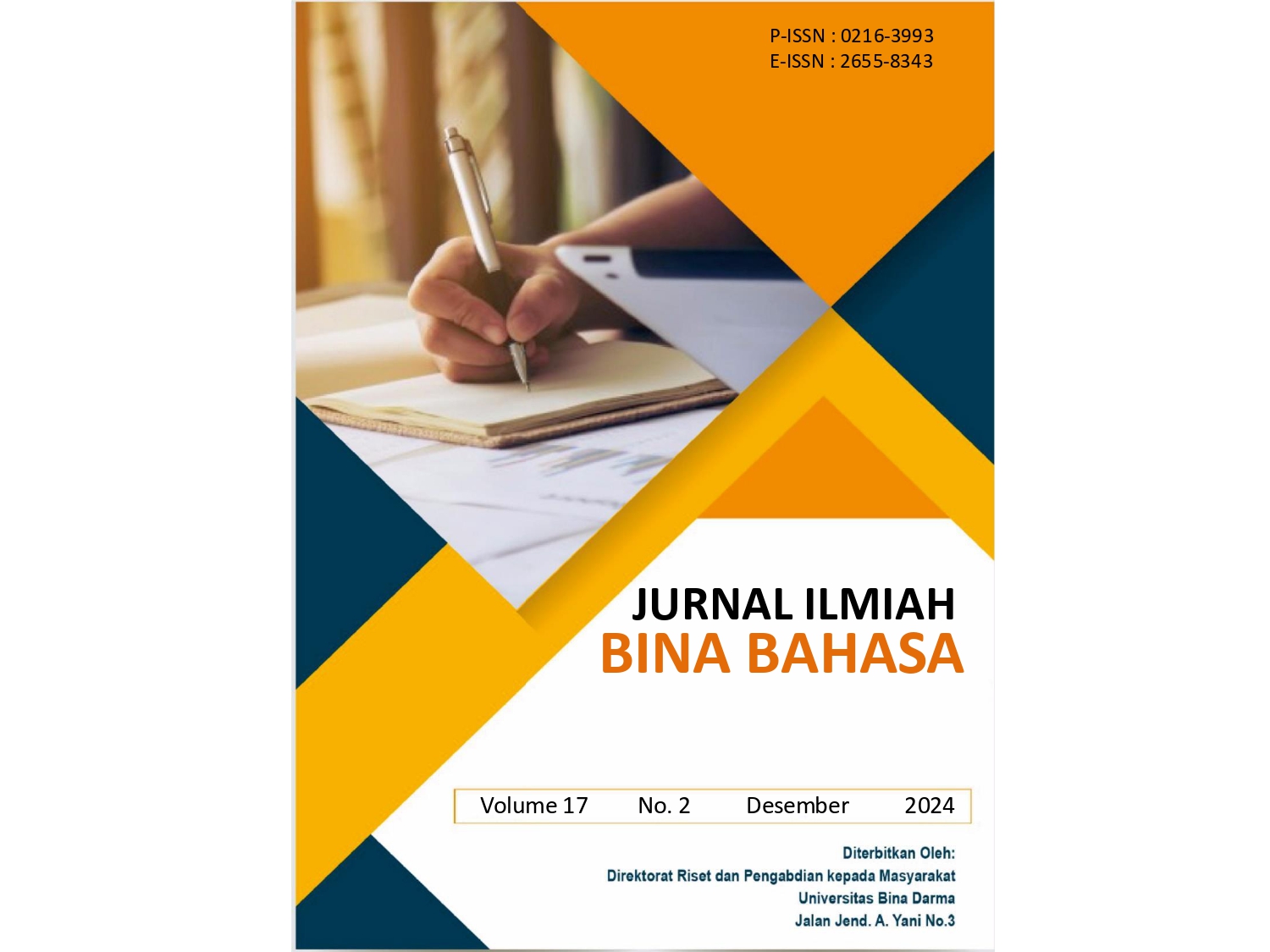ANALYSIS OF PANCASILA STUDENT PROFILES REPRESENTED IN ENGLISH TEXTBOOK FOR SENIOR HIGH SCHOOLS
Main Article Content
Abstract
Education is an effort to equip individuals with knowledge and instill character values to enhance students' future self-quality. This study analyzes the implementation of the Pancasila Student Profile (P3) in English textbooks for class X SMA/MA. The six elements of P3 include: 1) Faith, piety to God Almighty, and noble character; 2) Global diversity; 3) Collaboration; 4) Independence; 5) Critical reasoning; and 6) Creativity, serving as a framework to understand student characteristics. Using a qualitative approach and content analysis, this research involved identifying and categorizing text samples (e.g., words and sentences) to evaluate the representation of P3 dimensions. Findings reveal that the textbooks reflect behaviors and values aligned with the P3 dimensions. These include habitual worship and prayer, acceptance of differing perspectives, effective group discussions, critical problem-solving, and independent, wise behavior reflecting responsibility as Pancasila students. Results are presented in a checklist table, highlighting the integration of P3 values within the textbooks.
Article Details
Section

Jurnal Ilmiah Bina Bahasa by http://journal.binadarma.ac.id/index.php/binabahasa is licensed under a Creative Commons Attribution-ShareAlike 4.0 International License.
How to Cite
References
Anwari, H.-. (2021). The role of teacher in using textbook. Inovish Journal, 6(1), 1. https://doi.org/10.35314/inovish.v6i1.1843
Cintia, N. I., Kristin, F., & Anugraheni, I. (2018). Penerapan model pembelajaran discovery learning untuk meningkatkan kemampuan berpikir kreatif dan hasil belajar siswa. Perspektif Ilmu Pendidikan, 32(1), 67–75. https://doi.org/10.21009/PIP.321.8
Damayanti, I., & Mukarto, F. X. (2024). The analysis of tasks presented in kurikulum merdeka textbook English for nusantara. Premise: Journal of English Education, 13(1), 21. https://doi.org/10.24127/pj.v13i1.9065
Ernawati, Y., & Rahmawati, F. P. (2022). Analisis profil pelajar pancasila elemen bernalar kritis dalam modul belajar siswa literasi dan numerasi jenjang sekolah dasar. Jurnal Basicedu, 6(4), 6132–6144. https://doi.org/10.31004/basicedu.v6i4.3181
Hadna Suryantari. (2022). Exploring character of pancasila students in the English textbook for the tenth-grade senior high school students. Journal of English Language Learning, 6(2), 229–243. https://doi.org/10.31949/jell.v6i2.3772
Heriansyah, H. (2018, December 3-4). The importance of character education: The English teacher’s efforts and challenges in students’ character building. [Paper presentation]. International Conference on Early Childhood Education, Banda Aceh, Indonesia. https://jurnal.usk.ac.id/ICECED/article/view/13727
Miles, M. B., Huberman, A. M., & Saldaña, J. (2014). Qualitative data analysis: A methods sourcebook (Edition 3). Sage.
Muslich, M. (2011). Pendidikan karakter: Menjawab tantangan krisis multidimensional. Bumi Aksara.
Novitaningrum, I. (2023). Implementasi profil pelajar pancasila dalam pembelajaran menganalisis teks prosedur pada peserta didik kelas vii SMP Negeri 6 Semarang. Basastra, 12(1), 77. https://doi.org/10.24114/bss.v12i1.44569
Oktari, D. P., & Kosasih, A. (2019). Pendidikan Karakter religius dan mandiri di pesantren. Jurnal Pendidikan Ilmu Sosial, 28(1), 42. https://doi.org/10.17509/jpis.v28i1.14985
Sa’dullah, A. (2023). The importance of the role of an appropriate curriculum in education. [Paper presentation]. Proceedings of the International Conference on Education, Society and Humanity. https://ejournal.unuja.ac.id/index.php/icesh/article/view/5624/0
Sitasari, N. W. (2022). Mengenal analisa konten dan analisa tematik dalam penelitian kualitatif. Forum Ilmiah Indonusa, 19(1), 77-84. https://ejurnal.esaunggul.ac.id/index.php/Formil/article/view/5082
Sudarwati, Th.M., G., Eudia. (2022). Pathway to English 1 for SMA/MA grade X (k-merdeka). Erlangga.
Susiati, S., & Mufidati, E. (2020). An Indonesian national English textbook for secondary level: Is it qualified enough? Jurnal VARIDIKA, 32(1), 118–124. https://doi.org/10.23917/varidika.v32i1.11511
Suyadi, S., & Aisyah, S. (2023). Textbook evaluation: A framework for evaluating the English Subject in kurikulum merdeka for the tenth grade. Jurnal Ilmiah Universitas Batanghari Jambi, 23(3), 2695. https://doi.org/10.33087/jiubj.v23i3.4551
Widayati, S. (2020). Buku ajar kajian prosa fiksi. LPPM Universitas Muhammadiyah Buton Press.
Yanuarti, E. (2018). Pemikiran pendidikan Ki. Hajar Dewantara dan relevansinya dengan kurikulum 13. Jurnal Penelitian, 11(2). https://doi.org/10.21043/jupe.v11i2.3489
Zuchron, D. (2022). Tunas pancasila. Direktorat Jenderal Pendidikan Anak Usia Dini, Pendidikan Dasar, dan Pendidikan Menengah. http://repositori.kemdikbud.go.id/id/eprint/26349
Zuliani, Z., Ramadani, S., & Buaton, R. (2023). Student character grouping based on six dimensions of pancasila student profile using clustering method (Case study of SMK swasta setia budi Binjai). International Journal of Informatics, Economics, Management and Science, 2(2), 130. https://doi.org/10.52362/ijiems.v2i2.1202

